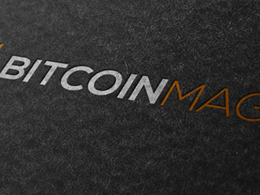
New York Times Attacks Bitcoin With Piece Full Of Misinformation
The New York Times has once again published an inflammatory article about Bitcoin mining full of misinformation. Although leading Bitcoin researchers were quick to refute the information and data as biased and false, the article remains online in an effort to push BTC into the corner of a climate sinner. One of the leading Bitcoin […]
Related News
Coinbase has launched a fact-checking portal to combat “misinformation and mischaracterizations about Coinbase or crypto” being shared online. Coinbase CEO Brian Armstrong has announced the launch of what he’s calling a “Fact-Check" via the company’s blog. In a May 27 post titled “Announcing Coinbase Fact Check: Decentralizing Truth in the Age of Misinformation,” Armstrong expressed the firm’s desire to combat untrue assertions aimed towards Coinbase and the crypto industry as a whole: “We will use this section of the blog to combat misinformation and mischaracterizations about Coinbase or....
Is The NY Times changing its tune? Not exactly, but it’s a start. And a big improvement over the mainstream media’s constant attacks on bitcoin. The newspaper interviewed notable bitcoiners, quoted them without twisting their words, and let them present the case for bitcoin supremacy. Of course, The NY Times also sneaked their usual points […]
ThinkProgress has published a blistering critique of bitcoin called Bitcoin: By The Privileged, For The Privileged. It's full of misunderstandings, misinformation, and, most distressingly, a few points that are actually really spot-on and important for bitcoin foes and friends to understand. The piece points out the unfortunate fact that bitcoin is now primarily held and used by the most privileged people. This is unfortunate because its greatest promise, I would argue, is for the people at the bottom. The fallout from an argument made ignorantly is that people who know better then feel....
A new Paypal user policy that permits the company to fine users $2,500 for spreading “misinformation” has caused quite a stir on social media platforms. After November 3, anyone who posts or publishes information or content to “promote misinformation” will be subject to the penalty.
Editor’s note: This article was updated to reflect that Paypal has retracted the user policy information after the social media backlash. The company said: “An AUP notice recently went out in error that included incorrect information.” The last....
In the midst of all the news and chaos surrounding Mt. Gox Monday evening, The New York Times released an interesting bit of information with regard to SecondMarket, the company behind the Bitcoin Investment Trust. From the Times piece (bold emphasis ours): But at the same time that the news about Mt. Gox was emerging, a New York firm announced plans to create an exchange that could draw the world's largest banks into the virtual currency market for the first time. The new exchange is being put together by SecondMarket, which rose to fame a few years ago after creating a platform for....





